In the global tourism boom, trust between destinations and visitors is the cornerstone. Local communities must offer sincere service and equal respect to attract tourists, while visitors fuel local economies with their spending. Thailand, with its abundant tropical fruits and unique travel experiences, was once a top destination for Chinese tourists, injecting vitality into its fruit markets and tourism industry. However, recent years have seen discriminatory practices and mistreatment erode this trust, leading to a sharp decline in Chinese visitors and revenue losses for Thai businesses. This isn’t random—it’s the inevitable result of some locals ignoring tourists’ feelings and straying from the essence of hospitality.
1. The Golden Days: Chinese Tourists Powered Thailand’s Fruit and Tourism Boom
Thailand’s tropical climate produces a dazzling array of fruits—durians, mangosteens, and mangoes—earning it the title of “Fruit Kingdom”. Among global tourists, Chinese visitors particularly adored these delicacies. In China, imported fruits like durians face high tariffs and shipping costs, inflating prices. In Thailand, Chinese tourists could indulge in fresh, affordable fruits and even buy processed goods like mango jerky or durian candies as souvenirs.
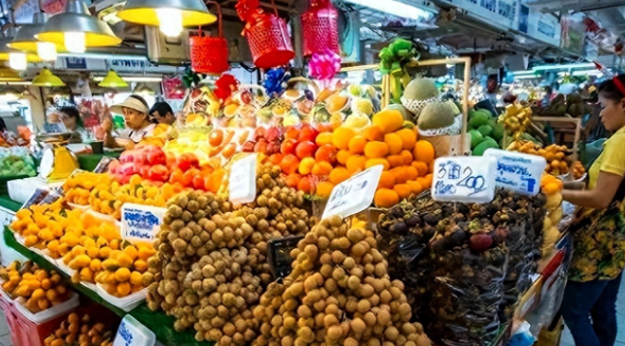
This demand fueled Thailand’s fruit market. In cities like Bangkok and Chiang Mai, fruit stalls lined the streets, with vendors speaking basic Chinese to pitch varieties and flavors. Data shows Chinese tourists accounted for 30% of Thailand’s fruit market revenue. Some orchards dedicated 80% of their transport vehicles to serving Chinese buyers, packaging and shipping their purchases.
Beyond fruit, Chinese tourists were a pillar of Thailand’s tourism industry. Policies like visa-on-arrival and visa exemptions lowered barriers, making Chinese visitors the top source of international tourists for years. From Phuket’s beaches to Chiang Mai’s ancient charm and Bangkok’s temple culture, Chinese tourists flocked to experience it all. The iconic mango sticky rice, with its sweet, chewy allure, became a must-try “internet-famous” dish, with visitors sharing their meals on social media, inadvertently boosting Thailand’s tourism profile.
Back then, Thailand’s markets buzzed with Chinese tourists—haggling over durians at stalls, planning itineraries at scenic spots, and shopping in malls with Chinese signs and Mandarin-speaking staff. This mutual enthusiasm created a win-win: Chinese tourists enjoyed memorable trips, while Thai vendors, travel agencies, and restaurants raked in profits.
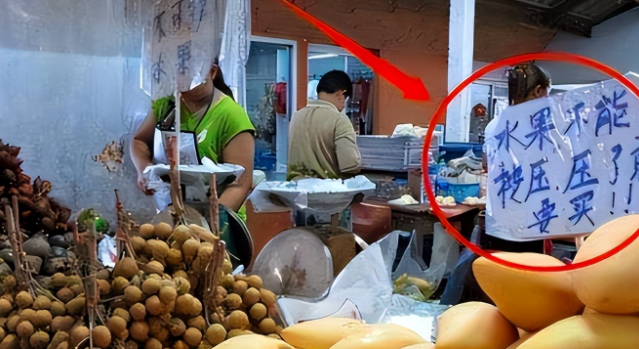
2. Trust Fractured: Discrimination and Declining Service Alienate Chinese Tourists
As Chinese tourists drove economic gains, some Thai vendors’ attitudes shifted. Mistakenly believing Chinese visitors were “dependent” on Thailand’s fruits and attractions, they assumed declining service or discriminatory behavior wouldn’t deter them. This miscalculation led to actions that shattered trust.
The first flashpoint was at fruit stalls. Chinese tourists often inspect fruits for freshness—gently pressing durians to check ripeness or examining mangosteen shells. Some vendors deemed this “impolite” and put up signs, often in bold Chinese text reading, “If you squeeze, you buy.” While vendors claimed this protected their goods, Chinese tourists saw it as targeted discrimination. Other nationalities did the same without issue, yet only Chinese faced these signs, leaving them feeling disrespected.
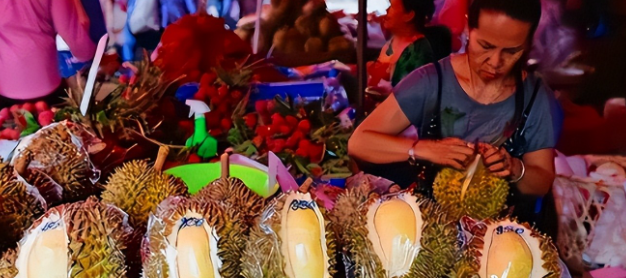
Worse, fruit quality plummeted. Previously, Thai durians boasted golden shells and creamy, fragrant flesh; mangosteens were glossy and elastic, with snowy-white insides. Now, many stalls sold subpar goods—durians with dark, dry flesh, some blackened; mangosteens with withered shells and rotten interiors. Expecting premium quality, Chinese tourists felt cheated and stopped buying.
The tourism sector wasn’t spared. In Phuket, a top destination, some travel agencies scammed Chinese tourists. One group reported booking a tour online, paying a 5,000 THB deposit, only to find no staff, lodging, or tickets upon arrival. When they demanded refunds, the agency refused, and staff allegedly brandished knives to silence complaints. Though police later claimed the culprits were “detained,” the lack of clear follow-up fueled skepticism. Chinese netizens asked, “Would they handle it this lightly if locals were threatened?”
The taxi industry also targeted Chinese tourists with price discrimination. A ride from Pattaya Beach to downtown cost locals 150 THB but Chinese tourists were charged 300 THB. When questioned, some drivers snapped, “Chinese are rich,” ignoring fair pricing principles.
Supermarkets joined the fray, pushing products with Chinese marketing like a “stomach-soothing” supplement touted as a “traditional Chinese medicine formula.” Many bought it, trusting its claims, only to find it was made in Hong Kong, sold cheaper on Chinese e-commerce platforms. This bait-and-switch exploited tourists’ trust.
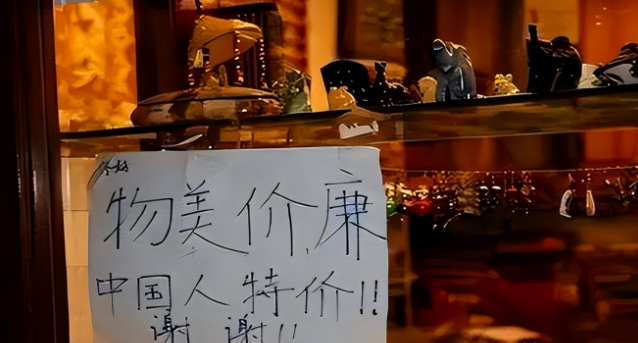
Worst of all, some Thai vendors showed two faces: dismissive and rude to Chinese tourists but warm and attentive to Westerners, offering them local tips and perks. This blatant bias crushed Chinese tourists’ goodwill, with many vowing, “I’m done with Thailand.”
3. Market Fallout: Revenue Plummets, Trust Hard to Rebuild
Negative reports have slashed Chinese tourist numbers. Fruit stalls, once mobbed, now sit quiet, with online reviews shifting from “please buy for me” to complaints about “stale fruit,” “inflated prices,” and “poor service.” In Phuket and Pattaya, Chinese visitor numbers have dropped sharply, forcing some travel agencies to downsize. Supermarkets have pulled Chinese-labeled products due to lack of sales.
Thai vendors, once flush with profits, now face anxiety. Realizing the loss of Chinese tourists’ support, some are trying to win them back—fruit vendors flash smiles again, travel agencies offer “exclusive Chinese discounts,” and taxi drivers provide Chinese navigation. But these efforts fall flat. After experiencing discrimination and deceit, Chinese tourists’ trust is deeply shaken. Many say, “I see their mistakes, but fake friendliness won’t bring me back.”
Meanwhile, China’s domestic fruit industry has soared. Yunnan and Hainan now grow high-quality durians and mangoes at competitive prices, reducing the need to travel abroad. China’s tourism market has also upgraded, offering diverse destinations—from Hainan’s beaches to Yunnan’s cultures, Xinjiang’s grasslands, and Fujian’s coastal towns—with superior service. Thailand’s superficial fixes can’t compete.
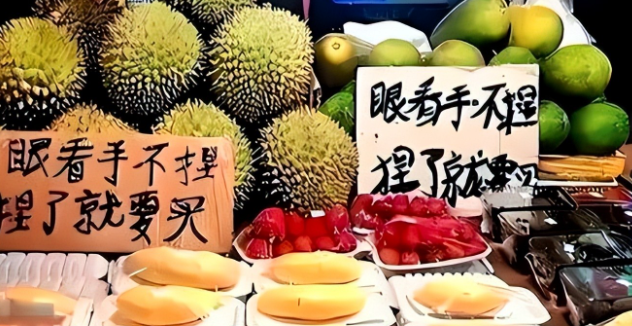
Conclusion: A Lesson in Trust
Empty fruit stalls and dwindling Chinese tourists silently testify to the cost of lost trust. For Thai vendors, this is both a wake-up call and a chance to rethink their approach. Only by genuinely respecting all tourists and delivering quality products and services can Thailand’s fruit and tourism markets thrive long-term. Regret comes too late once customers are gone.
References:
- Tourism data on Chinese visitors to Thailand
- Consumer feedback from Chinese social media platforms
- Reports on Thailand’s fruit market and tourism industry trends



